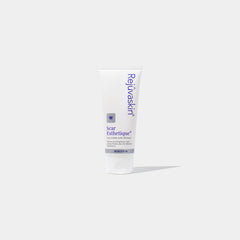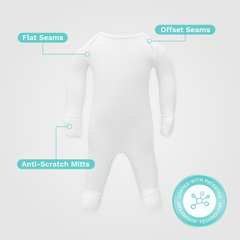Moms’ Mental Health Matters
- 1 in 8 women experiences postpartum depression
- Some women start to feel depression while they're still pregnant
- Anxiety during and after pregnancy is as common as depression and can occur in conjunction with one another
Expecting mothers and new mothers may find it difficult to ask for help or information on postpartum depression, so we encourage you to lead the conversation for Mental Health Awareness Month!
Coping With Mental Health: Tips for Recovery
In addition to seeking treatment for postpartum depression and/or anxiety, here are some tips for your patients:
Connecting With Other Moms
Sharing a narrative with individuals going through a similar set of circumstances helps us make sense of what individuals encounter in life “As stories are told, however, one is not just the teller but one of the listeners. These stories convince the self as well as others about one’s plans, goals, strengths and weaknesses. It is a human tendency to believe the stories that are told that makes them powerful tools for increasing one’s happiness and well being.” (Rutledge, p. 6)
Making Time for Yourself
Whether it’s a morning walk, a 10 minute coffee run alone, or as simple as a nice long shower, it is crucial to find an activity you enjoy that helps you cope and heal.
Being Realistic
Accepting the reality of a situation is key to improving your mental health. Challenge yourself, but don’t push too hard. Postpartum depression doesn’t have to be the end of your happiness. It can deprive the world of its beauty or it can spark an eternal flame to find the strength to recover, build lifetime connections, and help you focus on the things you can control.
Resting When the Baby Rests
Experts recommend new moms get at least seven hours of sleep. Lack of rest can make you forgetful and irritable. Since women have a higher risk of developing postpartum mood disorders, poor sleep may be a risk factor for the development of depression. That being said, try resting when your baby rests. Avoid household responsibilities and let others help. Doing it all yourself can leave you feeling stressed and anxious.
---
References
Park, E.M., Meltzer-Brody, S. & Stickgold, R. Poor sleep maintenance and subjective sleep quality are associated with postpartum maternal depression symptom severity. Arch Womens Ment Health 16, 539–547 (2013). https://doi.org/10.1007/s00737-013-0356-9
Rutledge PB. Everything Is Story: Telling Stories and Positive Psychology. In: Gregory EM, Rutledge PB. Exploring Positive Psychology: The Science of Happiness and Well-Being. ABC-CLIO. 2016.
U.S. Department of Health and Human Services. (2019, August 12). Mom's Mental Health Matters: Moms-to-be and Moms - NCMHEP. Eunice Kennedy Shriver National Institute of Child Health and Human Development. Retrieved May 18, 2022, from https://www.nichd.nih.gov/ncmhep/initiatives/moms-mental-health-matters/moms




















